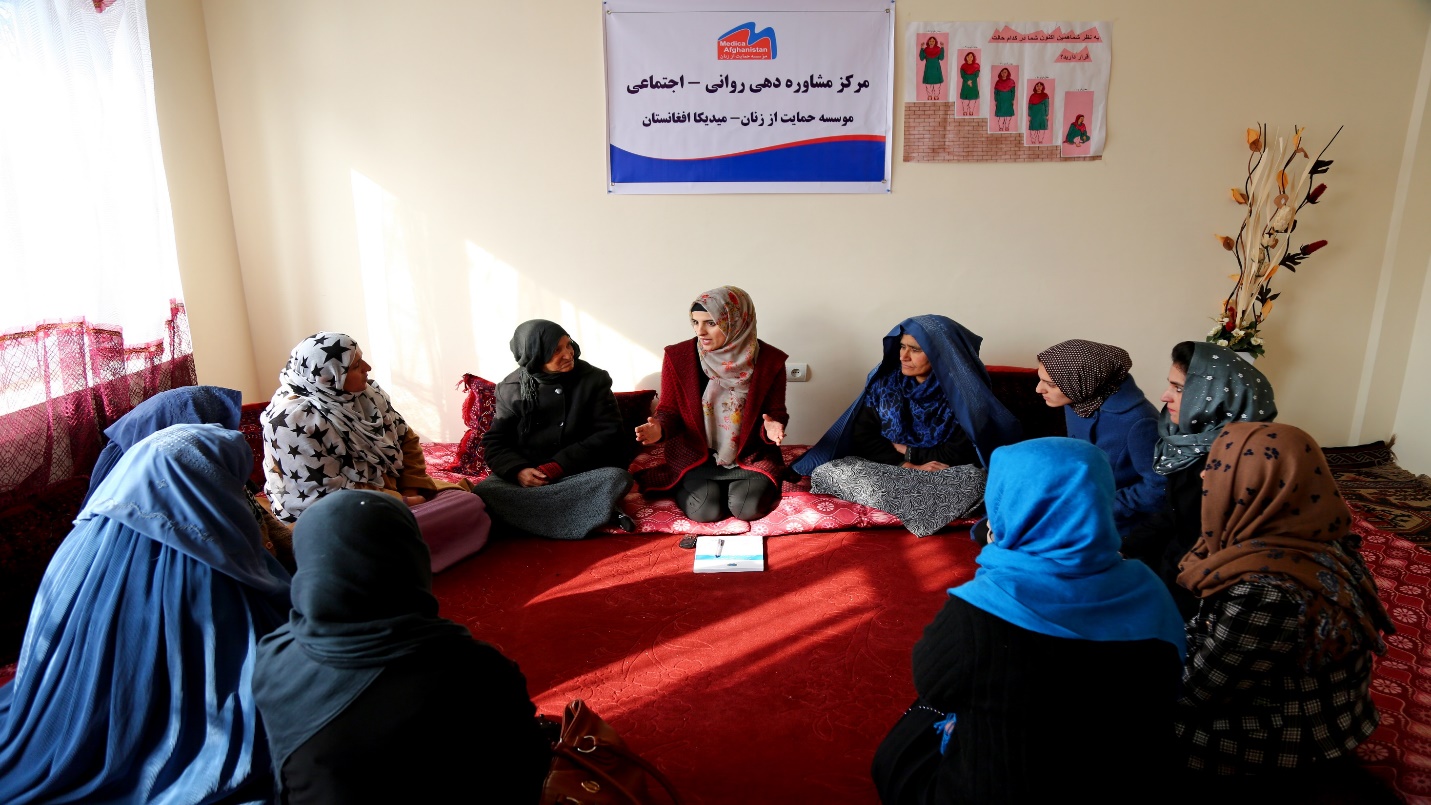
“Now I am a Strong Woman”
Stories from Afghanistan
ARTICLE
Women, Psycho-social, Violence, Literacy, Judicial Support
Decades of war have profoundly affected the mental health of Afghan women and their families. Several studies have found high levels of depression and other psycho-social problems among Afghans, particularly women, as a result of the violence. The program manager of the psycho-social department of Medica Afghanistan, Vida Faizi says: “In Medica Afghanistan our first aim is to decrease violence against women and provide health and psycho-social services for women.”
Medica Afghanistan is fighting for women rights and beside women they also provide awareness to men. ” We are raising awareness about women rights for religious leaders, social workers, teachers, medical staff, police, staff of the Ministry of Justice and NGOs. We are also providing training to decrease these problems, also advocating for those policies, which help to reduce or decrease the violence against women and girls.” Vida Faizi says.
At the present Medica Afghanistan offers direct legal, psychosocial, literacy education and mediation services to 2,000 survivors of SGBV (Sexual and Gender-Based Violence) from Kabul, Herat and Mazar, every year. Those who visit the psycho-social and legal services of Medica Afghanistan are women and girls who suffer or have suffered from domestic violence including sexual, physical and psychological abuses, forced/child marriages, and harmful cultural practices. In addition, most of them have been denied access to health, education, employment, judicial support and other basic rights.
Psychologists and psychosocial counselors offer psychosocial support though group and individual setting to Afghan women affected by violence at easily accessible locations such as our counseling centers across the cities, women's shelters, governmental hospitals where we have counseling rooms, and prisons. They are also providing consultation and psychological services to women treated in hospitals, especially trauma patients and those with burns.
Based on Medica Afghanistan’s assessments, women clients who participated in individual counseling exhibited feelings of revenge, hatred, suicidal thoughts and hopelessness: they had lost their trust in themselves and others. Some no longer felt their lives had meaning. Most of them complained about body pain, headaches, and muscular tension as a result of family conflict, torture, and collective trauma. After the counseling sessions, they were able to control their behavior better. The women clients’ situations also improved in regards to their fear, sad feelings, body pains and sleep problems. They got enough information about their symptoms through psycho-education sessions and learned relaxation exercises, coping mechanisms and skills, and gradually they are able to apply these in daily life. “When we talk to women who have tried to commit suicide because of family problems, we try to motivate them to live and love life.”
[1] https://www.youtube.com/watch?v=cGehk8Z52jk&feature=youtu.be

